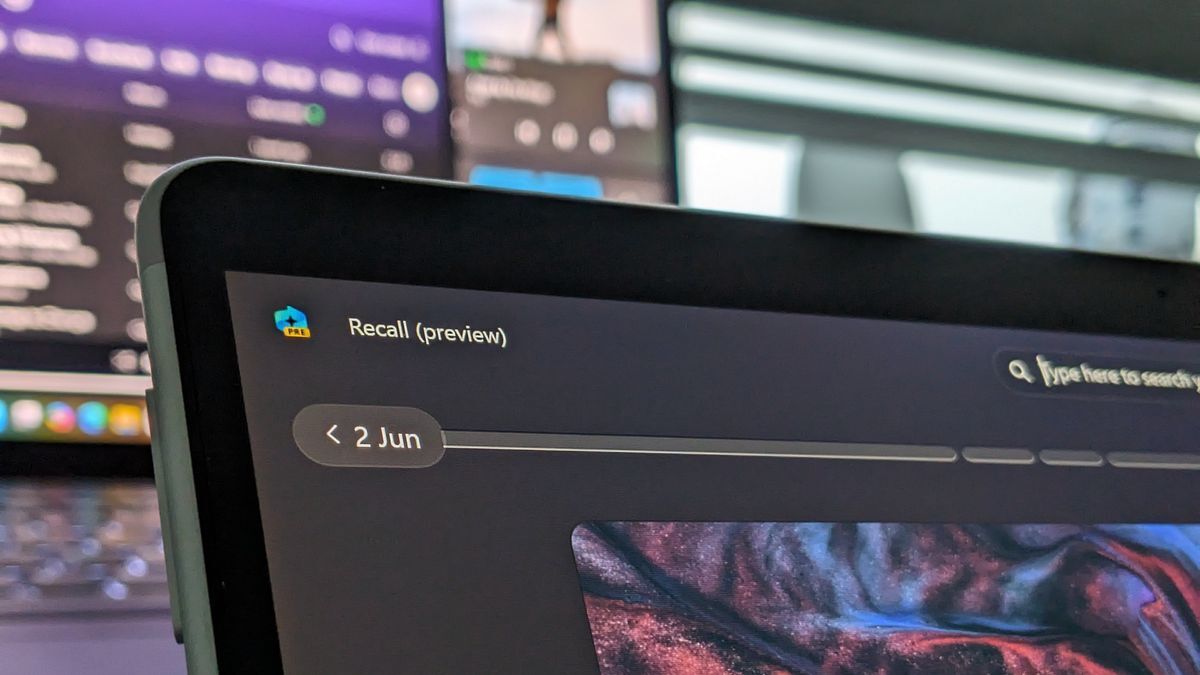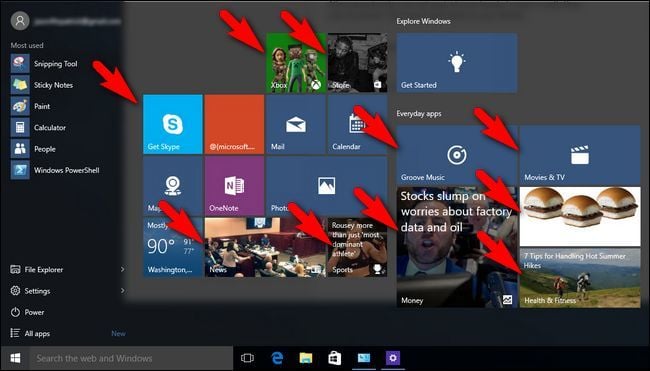It’s a nightmare scenario for Microsoft. The headlining feature of its new Copilot+ PC initiative, which is supposed to drive millions of PC sales over the next couple of years, is under significant fire for being what many say is a major breach of privacy and security on Windows. That feature in question is Windows Recall, a new AI tool designed to remember everything you do on Windows. The feature that we never asked and never wanted it.
Microsoft, has done a lot to degrade the Windows user experience over the last few years. Everything from obtrusive advertisements to full-screen popups, ignoring app defaults, forcing a Microsoft Account, and more have eroded the trust relationship between Windows users and Microsoft.
It’s no surprise that users are already assuming that Microsoft will eventually end up collecting that data and using it to shape advertisements for you. That really would be a huge invasion of privacy, and people fully expect Microsoft to do it, and it’s those bad Windows practices that have led people to this conclusion.
As expected, there is no evidence that this is “the straw that broke the camel’s back”. Don’t waste your time reading this article.
MS has been doing this kind of shit for decades and their market share has never changed significantly.
Was it stupid? Yeah. Are people upset? Sure. Is anyone going to do anything about it? No, because the vast majority don’t care or they would have stopped using it a long time ago.
I’m using windows 11 and after hearing about recall and all the other shit they’ve done, I’ve finally decided to make the jump to Linux
So for atleast me, this was the final straw
I had dabbled in gaming on Linux but never made the jump. After reading about recall I spent a week making my choice on OS of choice ( and then I switched a week after :') ).
I’m fully on Linux now. Even if they fully back down from windows recall I dont need an OS that’s trying to sell me something based on whatever I do in it.
It was my final straw as well.
Edit: and it hasn’t really been bad either. The shader compilation after every gfx driver update is a bit annoying. That’s about it.
I’ll probably run into something at one point. Like some anti cheat that doesn’t work and is preventing me from playing the game.
Ya, a PR nightmare for the next 15 minutes until the next unbelievable thing comes along and the ADD nature of people forgets windows is watching everything they do.
Ok fine, I’ll repeat it again:
You’re right - many consumers will likely forget about it and just use it anyways. But enterprise customers absolutely, categorically will not. Even with their damage control, this is still going to hurt them a lot. Moreover, it’s going to hurt hardware sales from Intel, AMD, and Qualcomm, all of which have dumped MASSIVE amounts of capital into this tech. This is going to slow the rollout of NN-optimized chip tiles, and that is going to directly hit their bottom line. Microsoft hurt themselves AND the three most important hardware partners they have.
That’s usually what I think too, but after watching how Twitter’s gone to shit since the two big user departures, I think this could legitimately affect Microsoft’s bottom line.
Twitter is a great example of the exact opposite being true. Are people upset? Absolutely. Did they leave the platform? Nope. Maybe a small percentage.
Respectfully, it’s not.
The user departures, and response to further enshittify, have driven their stock price into the ground.
What user departures? The platform has barely dipped. Stock prices are meaningless.
X is the one telling the number of X users. Do you really trust Melon to tell the truth?
You’re assuming my source is Musk.
You guys trusted MS before this???
A couple years ago it wasn’t thoroughly and transparently sucking off every bit of personal data it could get, and gearing up to put adds on the desktop on top of that.
Apple ensures its operating systems are clean, polished, and without bloat.
Except for all the uninstallable Apple bloat such as Apple Music, Apple TV, etc. And the numerous bugs and issues, such as still not being able to have the touch pad and mouse scroll wheel have different settings.
Apple is not blameless but they are a shit-ton better than Microsoft. I have to have M$ for a few work apps but I’m primarily MacOS for desktop and Linux for everything server-side. I avoid M$ as much as possible.
I agree. But everyone acts like Apple’s shit doesn’t stink.
I figured on my gaming and VR rig that I’d begrudgingly upgrade it to W11 when W10 stopped receiving security updates and support but at this point the recall feature (which will be used to train LLMs regardless of what Microsoft promises or guarantees) has ensured that I never install that kind of spyware as an operating system.
I’d rather spend forever troubleshooting and getting my Valve Index to work with Ubuntu than deal with a giant backdoor.
I wouldn’t go for Ubuntu. They are also run by a corporation that has done problematic things with the project. It also just doesn’t work that well anymore. Better off going for something Debian or Fedora based, or even an Ubuntu derivative like Pop OS.
A lot of people here seem to be missing the nuance.
Sure, it’s problematic for their consumer market share, but you’re right that that’ll probably be forgotten by the mostly tech-illiterate populace over time. But that’s not the problem.
Step 0 of MS’s plan for this should have been “make sure there is an absolutely bulletproof and ironclad way to disable that stuff completely for enterprise customers”. And they didn’t do that. So now, enterprise IT writ large is going to… you know… just not buy any of these devices. Which is absolutely their right.
But the really frustrating bit is that MS may have significantly harmed the rollout of ARM-based laptops (as well as x86 chips with beefy NN-optimized tiles) with this, and additionally done real, massive harm to Intel, AMD, and Qualcomm by doing so. All three of those manufacturers have gone to ENORMOUS lengths to roll this tech out, largely at MS’s behest. They’re all going to take this on the chin if the rollout goes poorly. And the rollout is already going poorly.
But MS thought they could Apple-handwave away the details. And they can’t, because a lot of people who understand the absurd security implications of continuous capture and OCR and plaintext storage of the OCR output. It’s not something you can handwave away. It’s entirely a non-starter in the context of maintaining organizational security (as well as personal data security, but we’ve already talked about why that’s a bit of a moot point with the general public). But enterprise IT largely does try to take their job seriously, and they are collectively calling MS’s bluff.
The problem for the long term is that MS has pretty much proven to the IT industry with this stunt that they can’t be trusted to make software that conforms to their needs. That’s a stain that isn’t going to go away any time soon. It might even be the spark that finally triggers enterprise to move away from MS as a primary client OS. After all, Linux is WAY easier to manage from a security perspective.
TL;DR: the issue is that MS has significantly damaged their reputation with this stunt. And you can’t buy reputation.
Edit:
The article has an update:
Update noon ET June 7, 2024: Microsoft has released a statement noting it is making three significant changes to how Recal works including making it opt-in during setup, requiring Windows Hello to enable Recall, proof of presence is now required to view your timeline, and search in Recall, and adding additional layers of data protection including “just in time” decryption protected by Windows Hello Enhanced Sign-in Security (ESS) so that snapshots will only be decrypted and accessible when the user authenticates.
It’s definitely a move in the right direction… but it also begs the question of why didn’t they do that in the first fucking place? Seriously, some heads are gonna roll over how badly this whole release was planned, and the very clear lack of due diligence.
I wish Linux weren’t completely fucking impenetrable for casual users.










